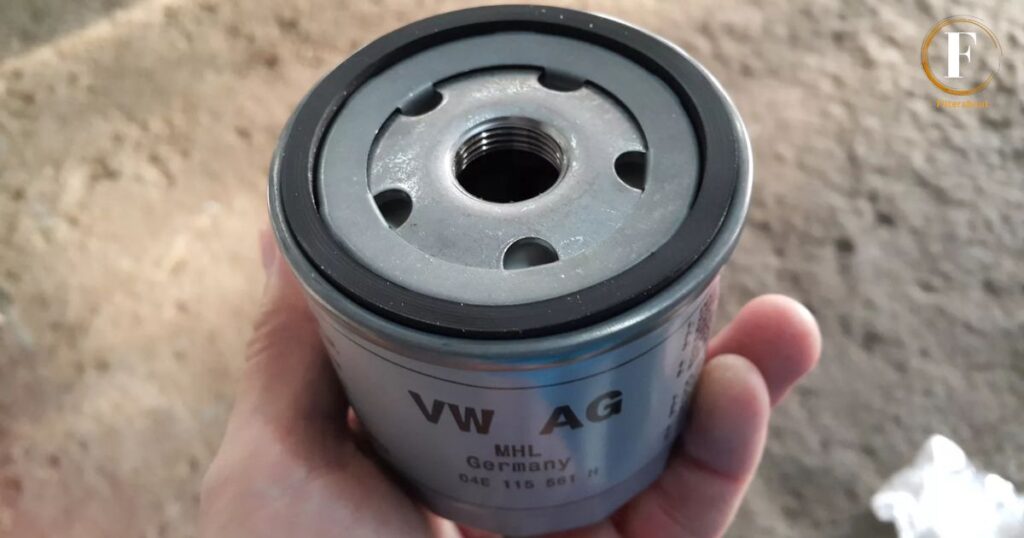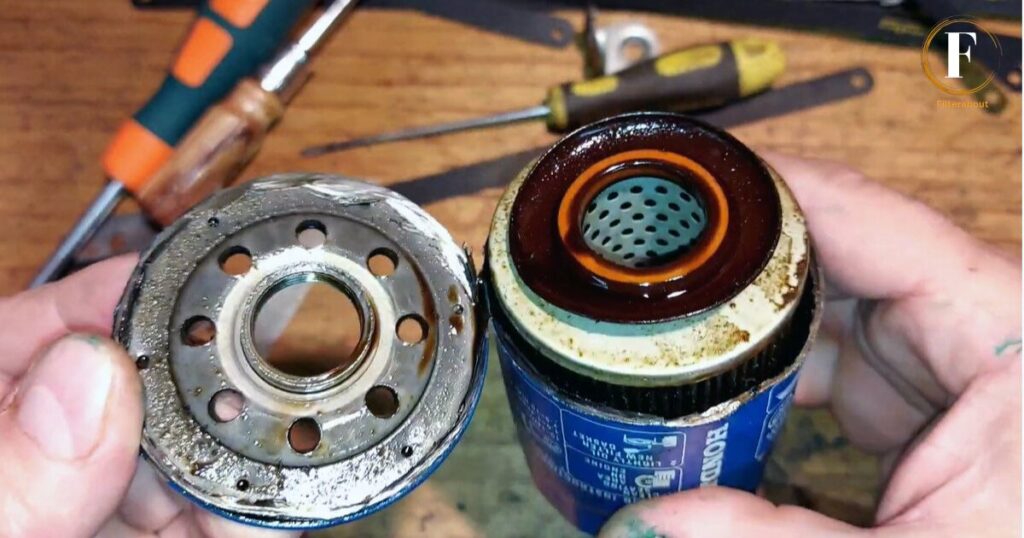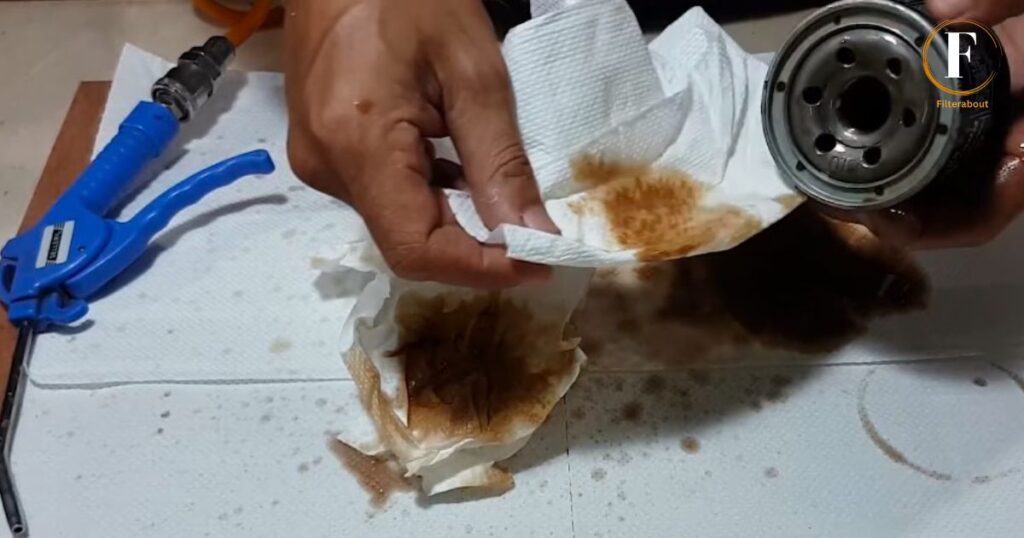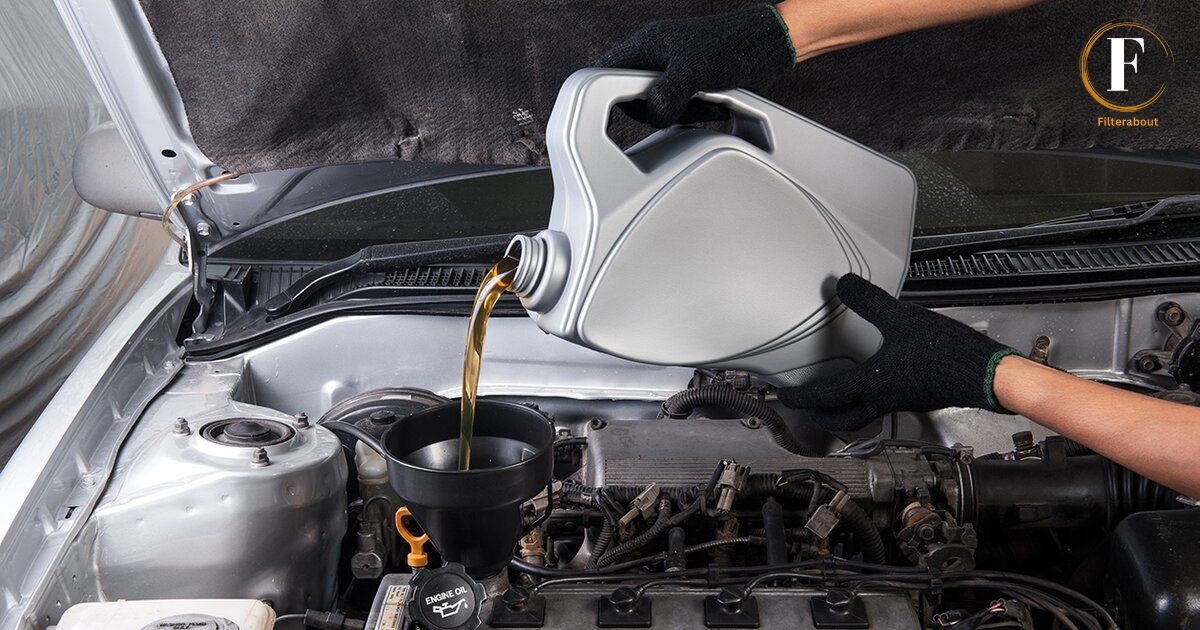Change oil filter removes contaminants from engine oil ensuring smooth engine performance and prolonging its lifespan. It involves replacing the filter element to maintain oil cleanliness and protect the engine from damage.
Wonder about Do You Need To Change Oil Filter Every Time? It’s a common query among car owners. The general rule is to change the oil filter with every oil change. The filter traps dirt and contaminants so a fresh filter ensures cleaner oil. However, some high-quality filters can last through multiple oil changes. Understanding your car’s needs and the filter’s quality is key.
Sure change oil filter every time you change your engine oil is generally recommended by manufacturers and mechanics. This practice helps maintain engine health by filtering out contaminants and ensuring smoother operation. It’s a simple step that can significantly prolong the life of your vehicle’s engine.
What Your Oil Filter Does?
An oil filter in a car performs a crucial role in engine health by cleaning the engine oil. It acts as a guardian trapping dirt contaminants and metal particles that accumulate in the oil over time.
The filter prevents these harmful elements from circulating through the engine safeguarding its components from potential damage and wear. By sieving out impurities the oil filter maintains the oil’s purity ensuring it can properly lubricate the engine’s moving parts for optimal performance and longevity.
Effectively the Change oil filter functions like a cleaning agent sieving out tiny particles and debris from the oil to preserve the engine’s health. Its task is critical as the cleaner the oil the better it can lubricate the engine reducing friction and preventing premature wear and tear on vital components.
Regularly replacing the oil filter during routine maintenance helps sustain the engine’s efficiency and extends its lifespan ultimately contributing to smoother more reliable vehicle operation.
How Long Can You Go Without Changing Your Oil Filter?

Regularly change oil filter is crucial for maintaining the health and performance of your vehicle’s engine. The oil filter plays a key role in trapping contaminants and debris that accumulate in the engine oil over time. Over an extended period, these impurities can lead to increased friction and wear on engine components potentially causing long-term damage.
It is recommended to change oil filter every time you change your engine oil which is generally around every 3,000 to 5,000 miles for conventional oil and up to 15,000 miles for synthetic oil depending on your vehicle and driving conditions. Ignoring regular oil filter changes can result in decreased fuel efficiency diminished engine performance and potentially costly repairs down the line.
While some vehicle owners may push the limits and go slightly beyond the recommended mileage change oil filter it’s essential to note that doing so poses risks to the engine’s well-being. Extending the interval between oil filter changes can allow contaminants to circulate through the engine compromising its efficiency and durability.
Ultimately adhering to the manufacturer’s guidelines and maintaining a consistent schedule for oil filter changes is a simple yet effective way to ensure your vehicle’s engine operates at its best for the long haul.
When Should I Change My Oil Filter?
Sure here’s a simple table in seven steps about when to change oil filter.
| Step | Mileage or Time | Consideration |
| 1 | Every 3,000 to 5,000 miles | Check the owner’s manual for the manufacturer’s recommendation. |
| 2 | Engine Oil Change | Typically changed simultaneously with oil changes. |
| 3 | Oil Quality | If oil appears dark or dirty, consider changing the filter. |
| 4 | Environment | Dusty or harsh conditions may require more frequent changes. |
| 5 | Maintenance Schedule | Follow the manufacturer’s suggested maintenance intervals. |
| 6 | Visual Inspection | Look for visible debris or particles during routine checks. |
| 7 | Warning Signs | If you notice reduced performance or engine issues, check the filter. |
What Happens If I Don’t Change My Oil Filter Once?

The oil filter in your car plays a crucial role in keeping the engine healthy. Over time as the filter accumulates dirt debris and contaminants from the oil it becomes clogged. If you neglect changing the oil filter it becomes less effective in trapping these harmful particles.
Dirty oil circulates through the engine leading to increased friction among moving parts. This friction can cause excessive wear and tear on critical engine components leading to potential damage and reduced engine performance. The lack of a fresh change oil filter can accelerate the degradation of your engine potentially causing expensive repairs or even engine failure.
Continuously using a clogged change oil filter compromises the oil’s ability to lubricate and protect the engine causing a domino effect of problems. Over time this could lead to decreased fuel efficiency overheating and even a complete breakdown of the engine. Regularly replacing your oil filter as recommended by your vehicle’s manufacturer is an essential part of routine maintenance to ensure optimal engine performance and longevity.
How Long Does Filter Oil Last?
Here are six steps explaining how to determine the lifespan change of filter oil.
- Initial Application: Apply filter oil as directed by the manufacturer when the filter is new or after a thorough cleaning. This establishes a baseline for its effectiveness.
- Observation: After using the filter for a while, regularly inspect its condition. Look for signs of dirt buildup reduced airflow or decreased filtration efficiency.
- Performance Assessment: Note any changes in the change oil filter performance. If you notice decreased effectiveness in trapping dirt or a drop in airflow despite cleaning it might be a sign that the filter oil is no longer fully functional.
- Regular Maintenance: Clean the filter regularly according to the manufacturer’s instructions. This ensures that the oil maintains its effectiveness and can prolong its lifespan.
- Usage Frequency: Keep track of how often the change oil filter is used and the conditions it encounters. Filters used more frequently or in harsher environments may require more frequent reapplication of oil.
- Replacement: Based on observations and performance replace the filter oil according to the manufacturer’s recommendations. Generally, change oil filter oil might need replacement after 3-4 cleanings or when it no longer effectively traps dirt and contaminants.
By following these steps and paying attention to the filter’s condition and performance you can effectively determine when to replace or replenish filter oil for optimal filtration.
Can I Clean Oil Filter with Petrol?

Cleaning an oil filter with petrol is possible but it’s not recommended. While petrol can dissolve and remove some of the accumulated debris in the filter it might not effectively clean it entirely. Using petrol to clean a change oil filter can pose safety risks due to its flammable nature.
The residue left behind by petrol can also affect the filter’s efficiency, potentially leading to oil contamination and reduced engine performance. It’s generally advisable to replace oil filters regularly according to the manufacturer’s recommendations rather than attempting to clean and reuse them.
If you’re considering cleaning an oil filter explore safer and more effective options such as using specialized filter cleaners or simply replacing the filter. Regular maintenance and proper replacement intervals are key to ensuring your engine runs smoothly and efficiently without the risk of contaminants affecting its performance.
Frequently Asked Questions
Is it OK to reuse oil filter?
Reusing oil filters isn’t recommended due to potential contaminants. It’s best to replace them during each oil change for efficiency.
Do you change oil or filter first?
It’s generally advised to change the oil filter first before draining the oil to prevent any dirty residue from circulating.
How do I know if my oil filter is bad?
Look for signs like poor engine performance dirty exhaust or metallic sounds. Also leaks low oil pressure or a clogged filter indicate issues.
Conclusion
Ensuring a vehicle’s oil filter is regularly replaced is a crucial aspect of maintenance promoting engine longevity and performance. While the necessity of changing the oil filter with every oil change varies based on driving conditions manufacturer recommendations and the filter’s quality it’s generally advised to replace the filter concurrently with oil changes.
Do You Need to Change Oil Filter Every Time a fresh filter effectively traps contaminants preserving oil purity and safeguarding the engine against wear. This practice prevents pollutants from circulating and potentially causing damage ensuring optimal engine health. Despite advanced filter technologies claiming extended life spans the cost-effectiveness of regularly changing both oil and filter outweighs potential repair expenses from neglect.
Ultimately consistent filter changes align with proactive vehicle care extending engine life and sustaining peak performance. Adhering to a regular maintenance schedule as per manufacturer guidelines or professional advice guarantees the continued efficiency and reliability of your vehicle’s engine minimizing the risk of avoidable complications.

Alexander Quinn is the author behind Filterabout.com. Known for expertise in diverse topics, Quinn’s content on the website reflects a versatile knowledge base catering to various interests.



![Jynxzi Age, Net Worth, Career[2024]](https://filterabout.com/wp-content/uploads/2024/05/Who-Is-Shanin-Blake-Age-Wiki-Parents-Dating-Net-Worth-300x148.jpg)
![Jynxzi Age, Net Worth, Career[2024]](https://filterabout.com/wp-content/uploads/2024/05/Jynxzi-Age-Net-Worth-Career2024-300x148.jpg)


![Kutty Surumi Net Worth, Bio, Age[2024]](https://filterabout.com/wp-content/uploads/2024/05/Kutty-Surumi-Net-Worth-Bio-Age2024-300x148.jpg)



![Jynxzi Age, Net Worth, Career[2024]](https://filterabout.com/wp-content/uploads/2024/05/Who-Is-Shanin-Blake-Age-Wiki-Parents-Dating-Net-Worth-150x150.jpg)